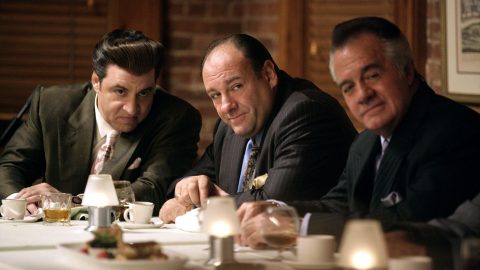NME Music News, Reviews, Videos, Galleries, Tickets and Blogs | NME.COM

It was a billy club to the gut that convinced Hunter S. Thompson it was time to get personally involved in politics. After being beaten and tear-gassed by police thugs during the anti-war protests which surrounded the 1968 Democratic Convention in Chicago, the inventor of gonzo journalism returned to his home in Woody Creek, just outside Aspen, Colorado, a changed man. “I went to the Democratic Convention as a journalist, and returned a raving beast,” he later wrote. “Suddenly, it seemed imperative to get a grip on those who had somehow slipped into power and caused the thing to happen.”
Thompson was also disturbed by the environmental destruction he saw happening around him in the Rocky Mountains, so the question he found himself posing half a century ago became one many of us are still asking today: in the face of obvious police brutality and the shadow of ecological disaster, how do we wrest control of power from those too corrupt to care? The answer Thompson came up with was a radical, local political campaign he termed ‘Freak Power’, and a run to be elected Sheriff of Aspen and the surrounding Pitkin County in 1970 under the banner of a six-fingered fist clutching a peyote button.
The story of Thompson’s singular campaign for office is the subject of the fascinating new documentary Freak Power: The Ballot or The Bomb. Stitched together from recently unearthed campaign footage and new interviews conducted by directors Daniel Joseph Watkins and Ajax Phillips, the film skilfully captures not just the specifics of what made Aspen in the late ‘60s ripe for political upheaval, but also how loudly the Freak Power campaign still resonates in this foul year of 2020.
Given Thompson’s experience with the wrong end of a billy club in Chicago, it’s not a surprise that a key pillar of the Freak Power platform was reforming the police. It was also a popular move in Aspen, a small town which had attracted a sizeable wave of hippie refugees fleeing the end of the Summer of Love in California. The local sheriff’s office took great delight in busting all these hairy weirdos for smoking pot, so much so that a couple of the hippies ended up suing the cops for discrimination. The lawyer who brought that case, Joe Edwards, was convinced by Thompson to run for Mayor of Aspen in 1969. Thompson himself would be his de facto campaign manager delivering regular shots of gonzo wisdom.

As part of the deal, Thompson promised to run for sheriff the following year – but only if Edwards won. After a massive voter registration drive Edwards lost by just six votes, a narrow enough margin to convince Thompson he should still follow through on his word. The office of Sheriff also presented him with a perfect opportunity to present a concrete plan to reform policing, and it was an opportunity he took seriously. Among other ideas, he proposed introducing a system of community policing, establishing an environmental crime detection office and redefining the role of Sheriff to become an ombudsman who would deal with citizen’s complaints.
The ideas were at once radical and eminently sensible, coming from a man who could see how the drug war was driving a wedge between communities and police. “As it is now, you just don’t talk to a cop. They’re the enemy,” he said at the Pitkin County Sheriff’s Debate that year, in a speech which often feels like it could have been delivered yesterday. “That’s true not only in Aspen, but all over the country. It’s a dangerous situation when the enforcement arm is totally out of communication with the reality. It’s time we either bridge that chasm with some kind of realistic law enforcement, or else I don’t think it’s going to be bridged in this country. We’re going to have a revolution.”

As serious as Thompson was about the campaign, that didn’t stop him having fun. He’d turned up to the debate that night with a freshly shaven scalp, specifically so that he could refer to the crew-cut incumbent Sheriff Carrol D. Whitmire as his “long-haired opponent”. Freak Power director Phillips points out that Thompson’s acerbic humour attracted voters who wouldn’t ordinarily pay much attention to a local sheriff’s office race. “He would use this language that was deliberately provocative,” she explains. “Making a pedestrian mall sounds so boring, but if you say: ‘We’re ripping up all the pavement and we’re sodding the streets at once’, suddenly it sounds like something exciting that I want to get engaged with.”
Among those drawn in to a political campaign for the first time was Bob Braudis, a young volunteer given the critical job of going around town making sure everyone with long hair had registered to vote. This was not always an easy task. “If you were a draft dodger in Vietnam, or you hated the government, the last thing you wanted to do was put your name on some official stationery in order to register to vote,” Braudis tells NME. Still, the experience proved a formative one for him. “It was the first time a bunch of us hippies, beatniks, freaks, whatever you want to call us, got involved,” he says. “We realised the only way to affect permanent change was through the ballot.”
Braudis is something of an authority on matters of the ballot. Not only was he elected Sheriff himself in 1986, he was then re-elected five more times before he retired in 2010. Not bad for a hippie, beatnik, freak or whatever you want to call him. Although Thompson would be narrowly defeated in 1970, the police reforms he recommended were taken up in 1976 by a candidate named Dick Kienast. “He carried all of Hunter’s principles forward,” explains Braudis, who remembers the Sheriff’s Office undergoing a startling transformation. “Dick Kienast hired me as a baby deputy. The message to the less liberal, less intelligent bullies was: ‘You don’t fit in here anymore.’ We replaced them with us. People called us: ‘Dick Dove and his Deputies of Love.’”
As Sheriff, Braudis championed ideas like community policing, which may seem obvious but is far from the norm in America. He points out that in Minneapolis, where George Floyd was killed, 94 per cent of police officers live outside the city. “In this country we are in dire need of community policing and prison reform,” he says. “Not defunding the police, but reinventing police. All of that basically happened in the ’70s and ’80s here in Aspen, but we do live in a bubble.”

Another central pillar of the Freak Power campaign that took root in Aspen was the idea of actively preventing development to preserve the environment. Sadly, they didn’t quite go as far as Thompson wanted – as well as the aforementioned ripping up and sodding of the city’s streets, he also proposed renaming Aspen ‘Fat City’ to troll developers seeking to profit from the name. Thompson loathed the idea of the pristine Rockies being carved up for yet more ski resorts. Braudis remembers Thompson putting it succinctly: “Real estate developers spread like piss puddles on a parking lot.”
Although the ‘Fat City’ rebrand sadly never came to be, many of Thompson’s allies – including the lawyer Joe Edwards – were elected to positions which allowed them to prevent what Braudis refers to as “wholesale greedhead development.”

The story of Freak Power, then, is a rebuke to anyone disillusioned by the idea that participating in our shaky democratic institutions really can make a difference. Director Watkins says that one of the things he hopes the film will do is inspire ordinary people not just to vote, but to run for office themselves. “If Hunter could run for Sheriff,” he points out, “anybody can run for anything!”
Sadly, of course, the current occupant of the White House proves just how horribly true that sentiment really is. Braudis sees some similarities now with the social divisions that first birthed Freak Power. “The country is more divided now than it was over Vietnam,” he says. “That’s because our President is a con man. His cabinet is a cabinet of puppets. Our Congress is a parliament of whores. Anyone who doesn’t know that is swallowing their pride in supporting him.”
Still, it’s the faith in democracy that Thompson’s run for Sheriff first instilled in him that leaves Braudis hopeful for the future. “What I learned from that campaign,” he says, “is that the power is truly in the hands of the people.”
‘Freak Power: The Ballot or The Bomb’ is available to stream now on Apple, Amazon and Vimeo
The post ‘Freak Power’: what Hunter S. Thompson’s fight to fix America can teach us in 2020 appeared first on NME Music News, Reviews, Videos, Galleries, Tickets and Blogs | NME.COM.



